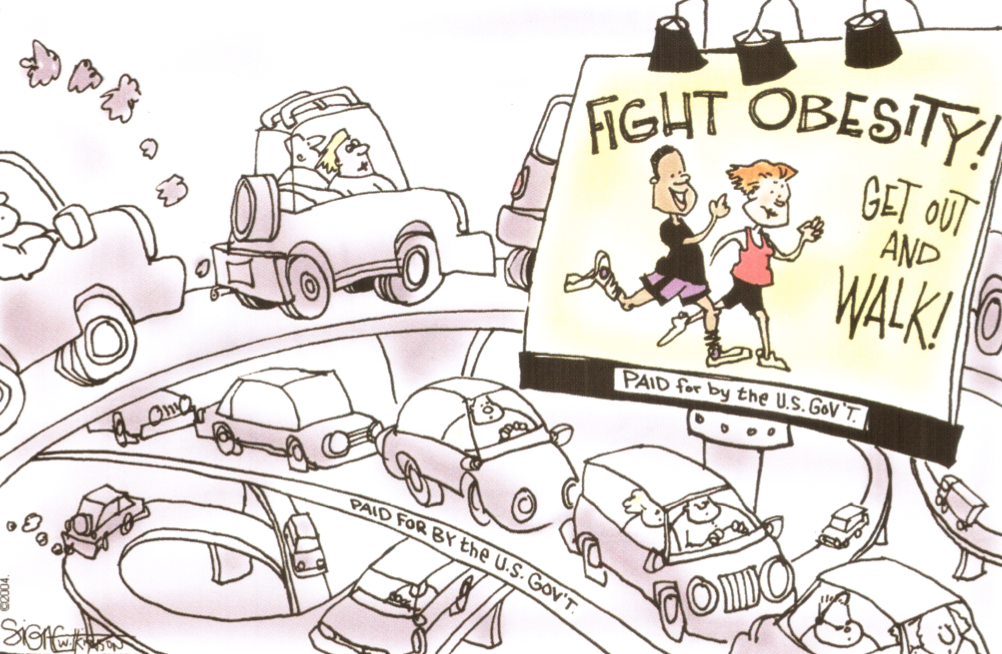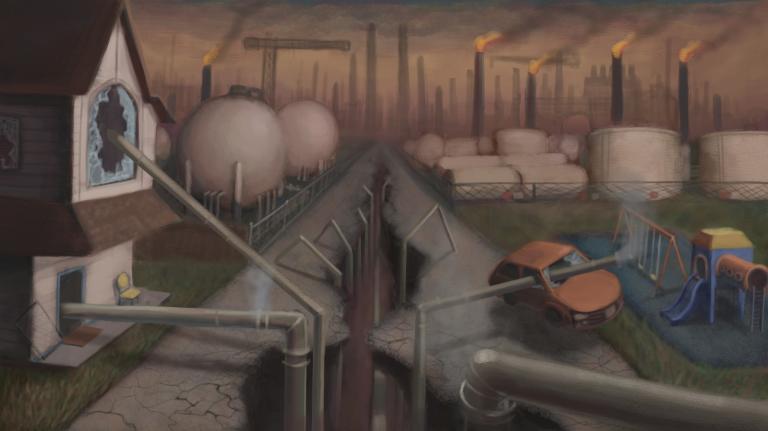If a picture is worth a thousand words, a political cartoon has got to be worth about double that. That’s about … the average length of one of my pieces.
By that reckoning, public health professor Marion Nestle’s newest book packs a lot in: It’s mostly cartoons, strung together with incisive, minimalist explanation. Eat Drink Vote touches on just about every issue that obsesses me, but without my tendency for running on at the mouth.
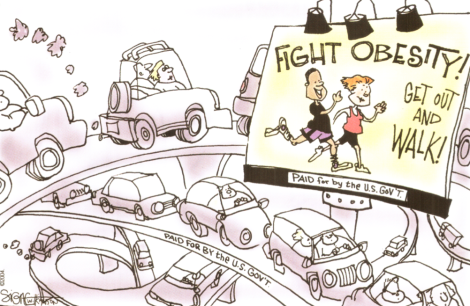
Like a good cartoon, Nestle’s main point makes the complex stunningly simple: The food Americans choose has already been chosen for them. What looks like a personal, or scientific, decision (to just get out and walk, or just eat healthier) is actually a political decision. We spend a lot of time obsessing about the little details that we can easily control — like trying to get foods sweetened with sugar rather than corn syrup — and not enough time on the big, tough, political problems that actually could make a difference.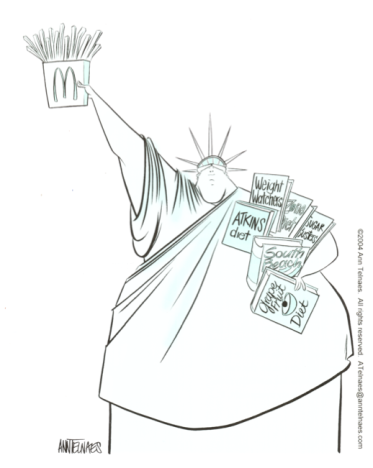
Despite all our technological mastery, we are still creatures shaped by our environment. We’ve reshaped the world to fit our whims, only to find that our lives are more determined than ever by our surroundings. Even as Americans bloat, there are lots of people who are going hungry, or, more commonly, who can’t afford to buy vegetables. We could subsidize healthier foods, but in recent years the government has done just the opposite: Support crops that tend to turn into the least healthy foods, while cutting the amount given to those who can’t afford food. On Wednesday, for instance, the U.S. House of Representatives is slated to vote on cutting food stamps for 3.8 million people.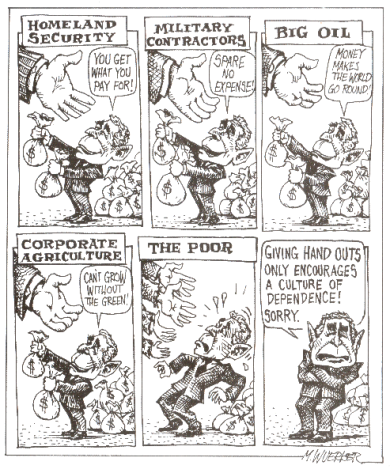 Of course, there’s only so much you can pack into a cartoon, and I’ll make the case that you perhaps lose just a touch of nuance trying to touch on GM food with images, as opposed to one of my lengthy inquiries.
Of course, there’s only so much you can pack into a cartoon, and I’ll make the case that you perhaps lose just a touch of nuance trying to touch on GM food with images, as opposed to one of my lengthy inquiries.
If only it were so simple. And yet, this nails something true. As Nestle writes, “Instead of focusing on the food needs of the developing world, food biotechnology companies engage almost exclusively in research on first-world agriculture.” If the big seed companies really were primarily humanitarian, or green, in their mission, the debate would be utterly transformed.
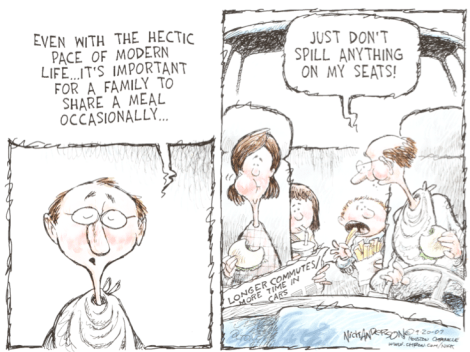
We’ve all been winners, to some extent, in the food politics of the status quo: There’s no doubt that it’s brought us cheap, efficient food. But the argument that there’s nothing we can do but campaign for still cheaper, and faster, food, rings hollow to me (and to Nestle as well I’d presume). There is something else we can do. We can campaign for a different way of life: One where we don’t need to eat on the run; one where we can all afford to pay farmers the full cost of good healthy food.
